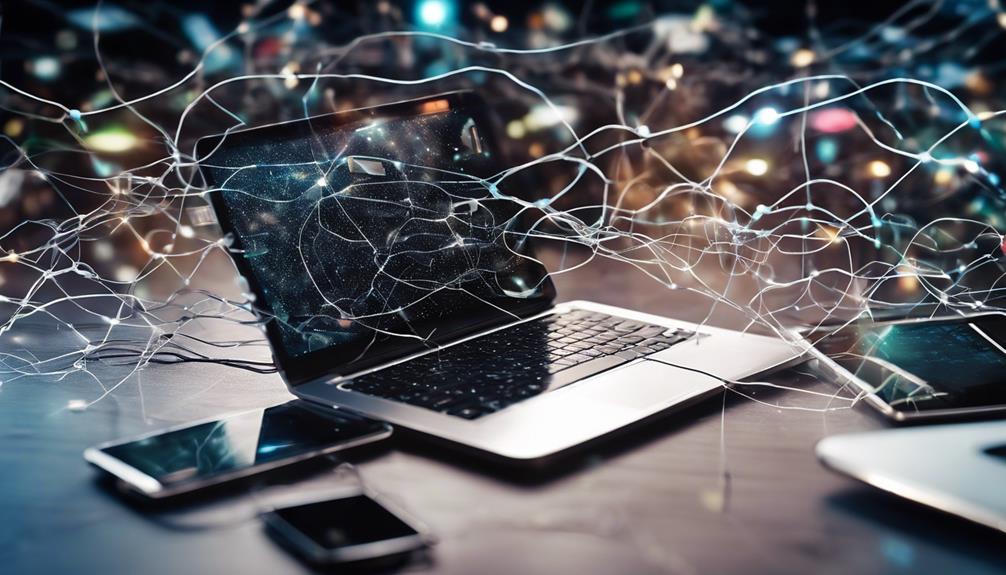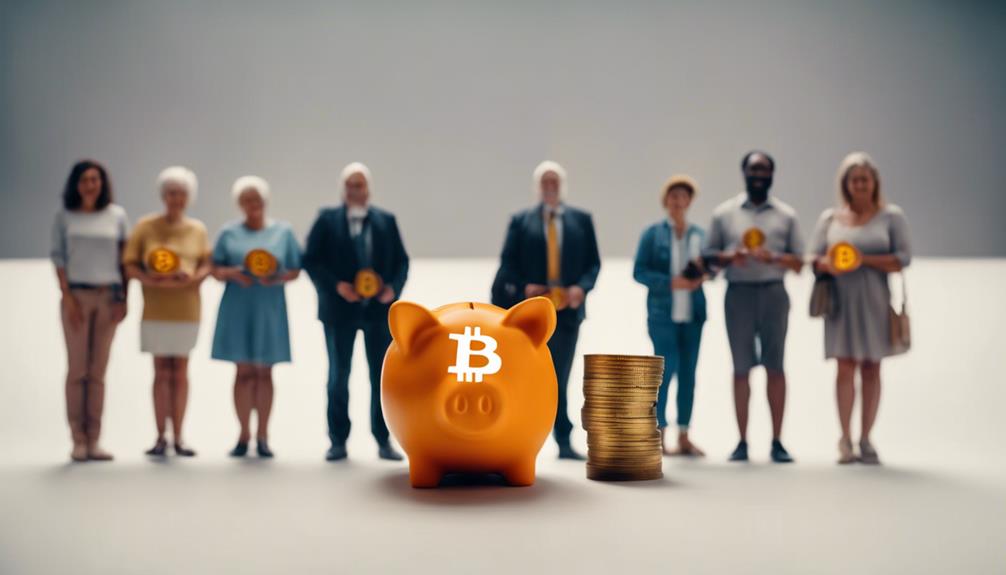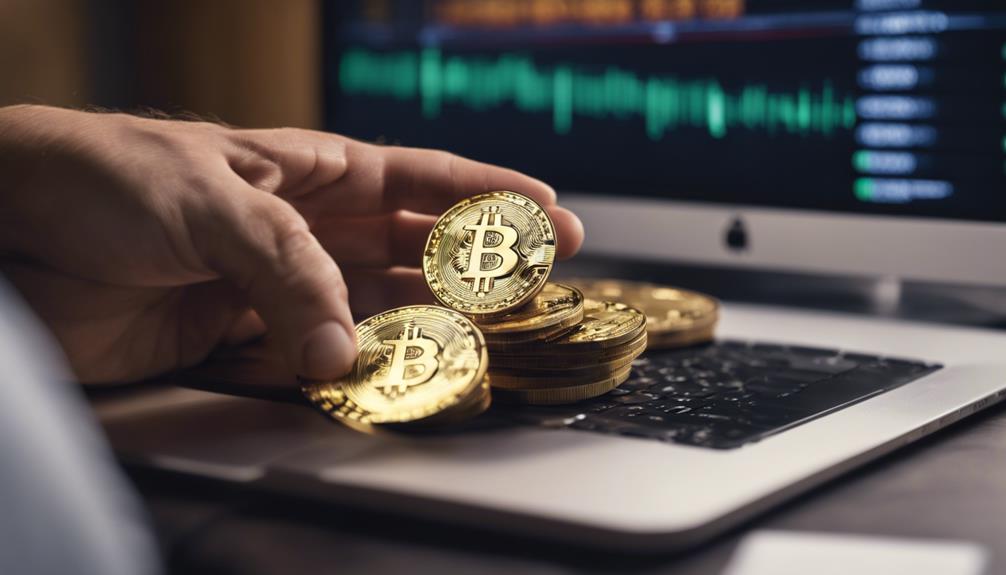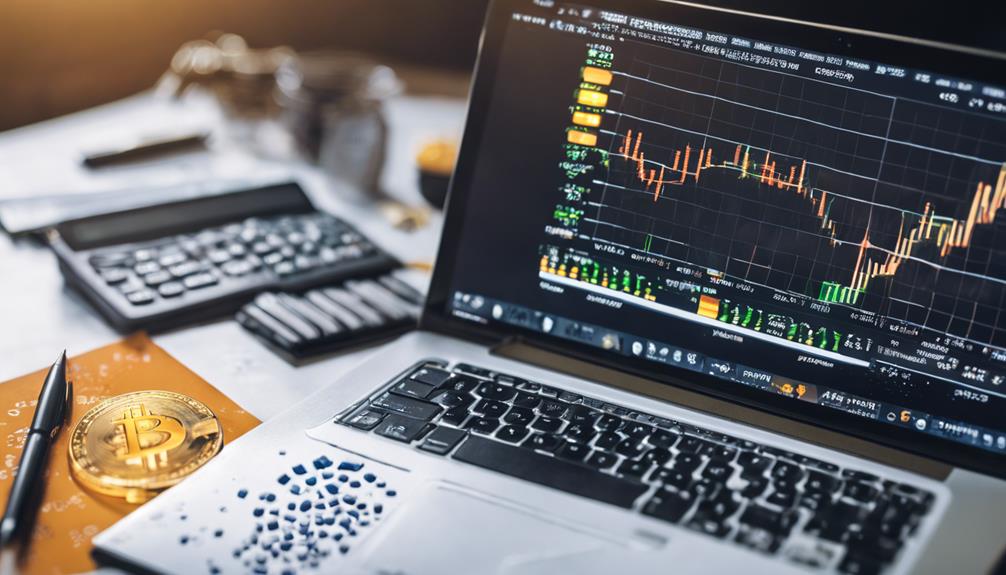Digital assets, such as cryptocurrencies and NFTs, depend on cryptography and blockchain technology for security and transparency. The verification of ownership is done through private keys, which are crucial for securely authorizing transactions. Public key cryptography is used to encrypt data for communication, and blockchain is responsible for maintaining transaction records. It is important to protect private keys in order to ensure the security of assets. These technological advancements are revolutionizing financial markets and presenting new investment opportunities. Delve into the complex mechanisms of digital assets to gain a more thorough understanding of how they function.
Key Takeaways
- Private keys establish ownership and authorize transactions securely.
- Public keys validate ownership transparently in the digital asset ecosystem.
- Encryption with public key cryptography ensures data protection and secure transactions.
- Blockchain technology secures and transparently records digital asset ownership.
- Access and storage methods utilize wallets and private keys for secure engagement.
Digital Asset Types
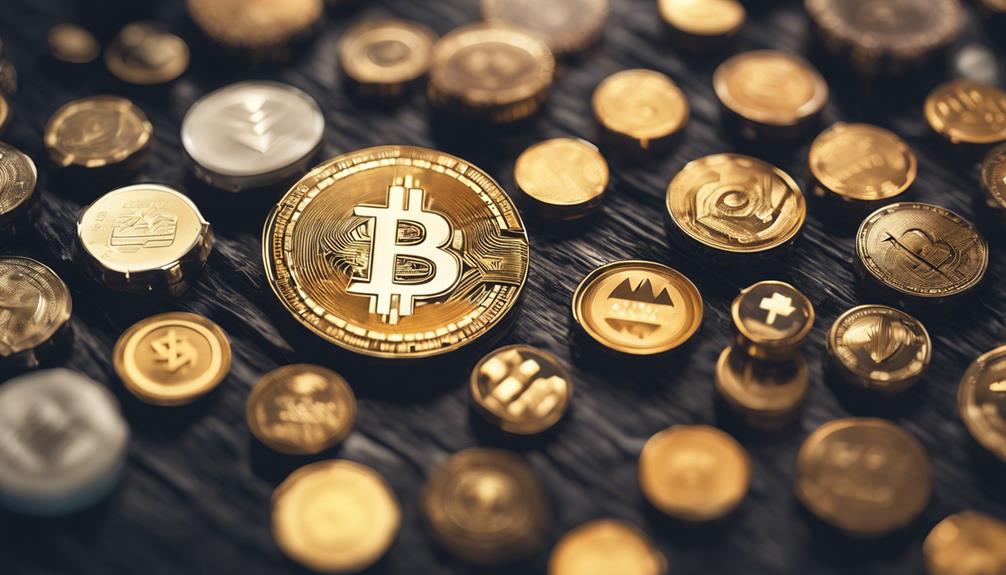
Exploring the diverse landscape of digital asset types reveals the various forms and functionalities they offer in today's financial ecosystem. Digital assets, powered by blockchain technology, come in various categories, each serving unique purposes in the digital economy.
Cryptocurrency, a popular type of digital asset, utilizes cryptography for security and operates as a medium of exchange or store of value. Stablecoins, another category, are designed to maintain price stability by being pegged to fiat currencies or commodities. Non-Fungible Tokens (NFTs) stand out as they represent one-of-a-kind digital items and assets on the blockchain, enabling proof of ownership and authenticity.
Central bank digital currencies (CBDCs) are digital representations of traditional fiat currencies issued by a nation's central bank, bridging the gap between digital innovation and government-backed money. Additionally, security tokens offer digital ownership of assets like company shares or real estate, providing a new level of liquidity and accessibility through blockchain technology.
The evolving landscape of digital assets showcases the diversity and innovation present in today's financial markets.
Security and Encryption
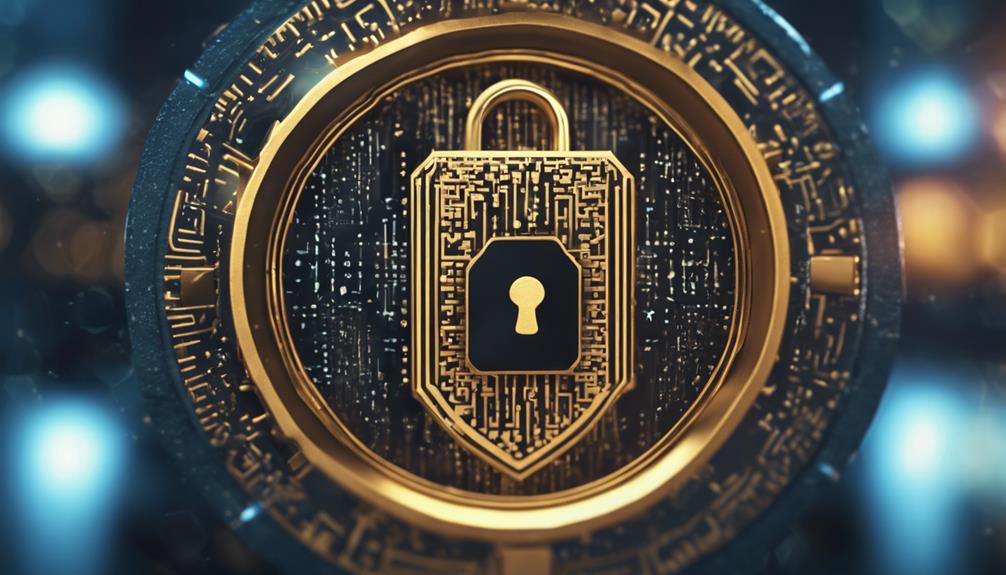
Security and encryption play a crucial role in safeguarding digital assets. By utilizing encryption techniques like public key cryptography, we guarantee that only approved individuals can access and transfer digital assets securely.
Private keys are essential components for the safe storage and management of digital assets.
Encryption Importance Explained
When safeguarding digital assets, encryption stands as an essential shield, utilizing intricate algorithms to fortify sensitive information. Encryption plays a vital role in securing transactions and preventing unauthorized access to valuable data.
Through public key encryption, secure communication and verification of ownership in the digital asset space are achievable. Private keys are fundamental as they provide exclusive access to digital assets, ensuring that only authorized users can control them. This technology safeguards digital assets from cyber threats like hacking and data breaches, maintaining the integrity and confidentiality of sensitive information.
Understanding the importance of encryption is paramount in the digital world to protect assets and maintain a secure online environment for all transactions and data exchanges.
Secure Data Transmission
To fortify the protection of digital assets, implementing secure data transmission through encryption methods is crucial. Encryption methods such as RSA and AES play a crucial role in safeguarding data during transit.
SSL/TLS protocols establish secure communication channels, ensuring data is transmitted safely across networks. Public key cryptography adds an extra layer of security by allowing only authorized parties to decrypt and access the transmitted information.
Secure data transmission is essential in shielding sensitive data from unauthorized access, maintaining the integrity and confidentiality of digital assets. By employing these encryption techniques and secure communication protocols, organizations can enhance the security posture of their digital assets and mitigate the risks associated with data breaches and cyber threats.
Protecting Digital Assets
We prioritize the protection of digital assets through the implementation of robust encryption technologies and secure storage methods. Private keys play an essential role in ensuring ownership and access to these assets.
Encryption technology serves as a barrier against unauthorized access and tampering, safeguarding the integrity of digital holdings. Utilizing offline storage, such as hardware wallets, enhances security by minimizing exposure to online threats.
Regular audits are necessary to verify the security and integrity of digital assets. Education and training on security measures are important for all stakeholders involved.
Ownership and Transactions
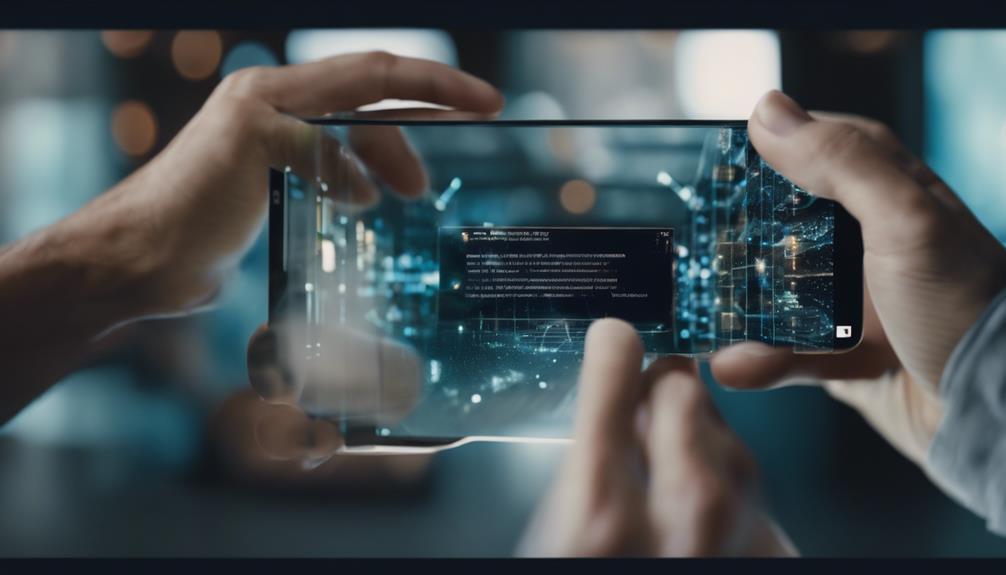
How do private keys establish ownership and enable transactions with digital assets?
Ownership of digital assets is secured through the use of private keys, which are cryptographic codes linked to specific blockchain ledger entries. These keys serve as digital signatures that authenticate and authorize transactions involving digital assets.
When a transaction is initiated, the private key associated with the sender is used to sign the transaction, indicating consent to transfer ownership. Subsequently, the recipient utilizes their private key to claim and confirm receipt of the digital assets.
Public keys, derived from private keys, are then used to validate ownership transparently on the blockchain ledger. Safeguarding private keys is paramount to prevent unauthorized access and uphold the security of digital asset holdings.
Without private keys, transactions can't be securely executed, highlighting their indispensable role in facilitating the transfer of ownership and ensuring the integrity of transactions within the digital asset ecosystem.
Digital Identity Verification
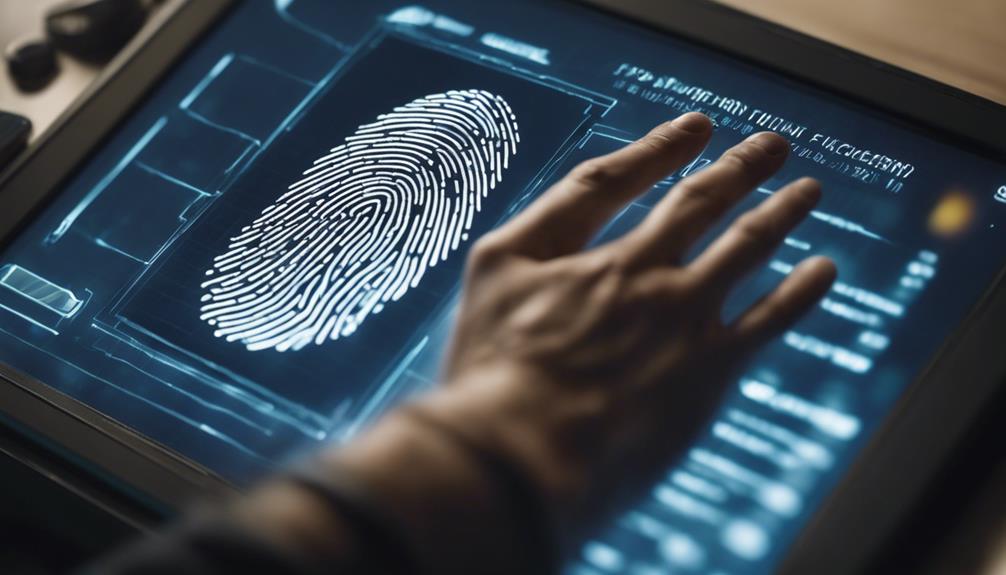
In enhancing online security, digital identity verification plays a pivotal role by ensuring accountability and trust in transactions. This process utilizes cryptographic algorithms to securely authenticate identities, helping to prevent fraud or manipulation in digital asset transactions. By implementing robust digital identity verification measures, only authorized individuals can access digital assets and sensitive information, maintaining security and preventing unauthorized access.
| Key Aspects | Description |
|---|---|
| Verification Methods | Utilizes cryptographic algorithms to authenticate identities securely. |
| Role in Preventing Fraud | Helps in preventing fraud and manipulation in digital asset transactions. |
| Importance of Authorization | Ensures that only authorized individuals have access to digital assets and sensitive data. |
| Ensuring Transaction Integrity | Maintains the integrity of digital asset transactions, enhancing accountability and trust. |
Digital identity verification is a critical component in the domain of digital assets, particularly in blockchain technology, where trust and security are paramount. By employing sophisticated verification methods, organizations can safeguard against fraudulent activities and uphold the integrity of their transactions.
Public Key Cryptography
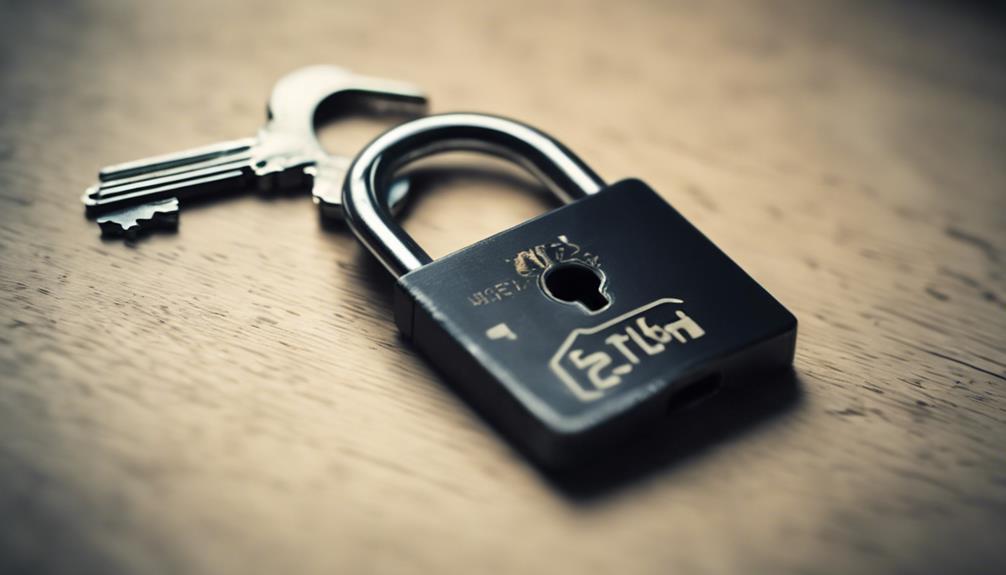
Public key cryptography involves the generation of a pair of keys, one public and one private, used for encryption and decryption respectively. This process guarantees secure communication by allowing the sharing of the public key openly while keeping the private key confidential.
Understanding key pair generation and the data encryption process is fundamental to grasping the efficacy of public key cryptography in maintaining digital security.
Key Pair Generation
Generating a key pair in public key cryptography involves creating a public key for encryption and a private key for decryption. The public key is shared openly to encrypt data, while the private key is securely kept to decrypt the information.
This method guarantees secure communication and data protection in digital transactions. Public key cryptography is essential for verifying identities, securing transactions, and safeguarding sensitive data. It plays a fundamental role in digital asset management, ensuring ownership protection and facilitating secure transactions.
Data Encryption Process
Utilizing a pair of cryptographic keys, we implement a secure data encryption process known as public key cryptography. In this method, a public key is used for encryption, while a private key is employed for decryption.
Public keys are openly shared to encrypt data, ensuring secure communication and data protection during digital transactions. This encryption process plays an essential role in verifying identities and securing online transactions involving digital assets.
The mathematical relationship between the public and private keys forms the foundation of secure data encryption and decryption in digital asset operations. By leveraging public key cryptography, we establish a framework for safe and reliable communication, enhancing the security of digital transactions in the world of digital assets.
Role of Blockchain Technology
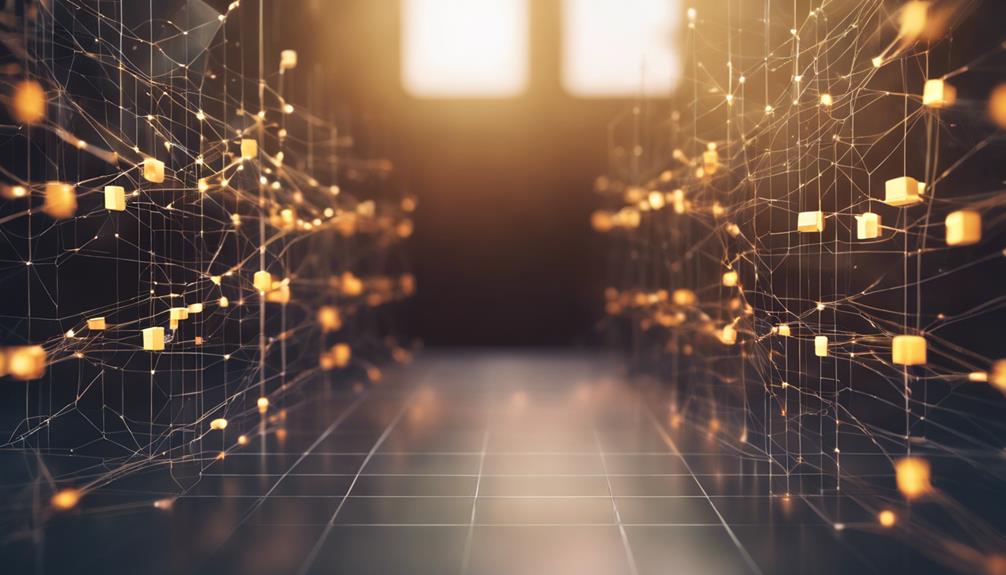
Exploring the transformative power of blockchain technology in enhancing the security and efficiency of digital asset transactions, we investigate the revolutionary impact of this technology. Blockchain guarantees secure and transparent transactions by creating an immutable record of ownership and transaction history through cryptographic algorithms. This not only protects digital assets but also strengthens resilience against cyber threats.
By eliminating intermediaries, blockchain streamlines processes, enhancing efficiency and reducing costs in transactions. The decentralized nature of blockchain technology secures digital assets stored on its ledger from unauthorized access and tampering, providing an additional layer of protection. Its influence spans across various industries, including finance, healthcare, government, and supply chain management, where it optimizes processes and fortifies security measures.
The role of blockchain in digital assets is crucial, offering a paradigm shift in how transactions are conducted and assets are safeguarded.
Access and Storage Methods
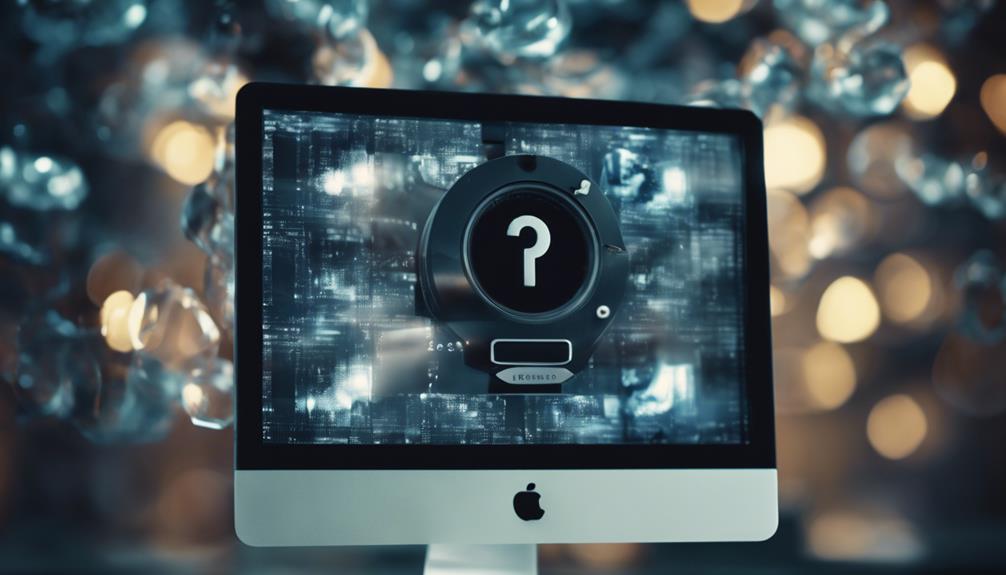
In managing digital assets, understanding the methods for accessing and storing them is vital to safeguarding ownership securely. Digital assets rely on blockchain technology, utilizing public and private keys for ownership verification.
Private keys, stored in wallets, serve as the gateway to accessing and transacting digital assets. These keys are essential for proving ownership and authorizing transactions within the digital asset ecosystem. Safeguarding private keys is essential to prevent unauthorized access and protect assets from potential threats.
Additionally, the access layer plays an important role in the digital asset world, providing user interfaces for engaging with various platforms such as marketplaces, DeFi protocols, games, and decentralized applications (dApps). By comprehending the significance of wallets, private keys, and the access layer, individuals can navigate the digital asset landscape with confidence and maintain the security of their holdings.
Impact on Financial Markets
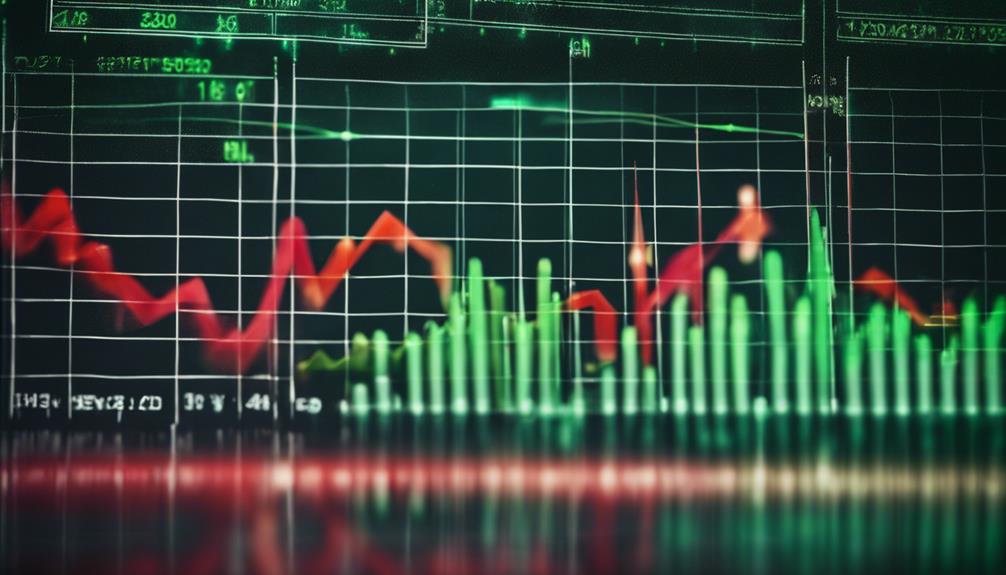
Digital assets have greatly transformed financial markets, facilitating quicker and more efficient transactions. The underlying technology behind digital assets, known as blockchain, has revolutionized the way we trade digital assets. The blockchain ecosystem guarantees transparency and security for all market participants, reducing the need for intermediaries and streamlining processes.
Decentralized finance (DeFi) platforms have emerged, offering financial services directly to users without traditional middlemen, thereby reshaping market dynamics. Furthermore, institutional adoption of digital assets is on the rise, with significant players incorporating them into their investment portfolios. This integration further legitimizes digital assets within the financial market space.
Additionally, the advent of tokenized assets, such as real estate and commodities, has expanded investment opportunities, allowing investors to diversify their portfolios with previously inaccessible assets. These advancements underscore the profound impact of digital assets on financial markets and highlight the ongoing evolution of the financial landscape.
Future Trends and Innovations

The evolution of digital assets in financial markets sets the stage for upcoming trends and innovations that will redefine the landscape of asset management and investment strategies.
Future trends in digital assets will see increased adoption of blockchain technology, revolutionizing the way transactions are conducted across various industries. This shift towards blockchain and digital integration won't only enhance security measures but also improve the overall user experience in managing digital assets.
Additionally, the emergence of tokenization, converting real-world assets into digital tokens, will lead to increased liquidity and accessibility in the market. Advanced technologies such as smart contracts and decentralized finance (DeFi) are poised to play a pivotal role in shaping the future of digital asset operations, offering new avenues for investment and asset management strategies.
It's essential to note that regulatory developments will also play a crucial role in influencing the trajectory of digital asset markets, safeguarding investor interests and ensuring market integrity. Governments and financial authorities around the world are actively formulating policies to address the unique challenges posed by these emerging markets. Businesses and investors will need to stay informed and adapt their strategies to effectively navigate regulatory compliance for digital assets. This proactive approach will not only mitigate legal risks but also foster trust and stability within the ecosystem.
Frequently Asked Questions
How Do Digital Assets Work?
Digital assets operate by utilizing blockchain technology to securely record ownership and transactions. Verification of ownership is achieved through public and private key cryptography, stored in digital wallets for secure access.
Transactions are transparent and immutable on the blockchain ledger, eliminating the need for intermediaries due to the decentralized nature of digital assets. This system guarantees security and transparency in digital asset management.
What Are Examples of Digital Assets?
Digital assets encompass various types like cryptocurrencies, NFTs, stablecoins, security tokens, and CBDCs. Examples include Bitcoin and Ethereum as popular cryptocurrencies, NFTs representing unique digital items, stablecoins like USDC and DAI ensuring price stability, security tokens complying with regulations, and CBDCs exploring digital representations of fiat currency.
These assets offer diverse opportunities for investment, utility, and innovation in the evolving digital economy.
Who Controls Digital Assets?
We control digital assets by safeguarding our private keys. These keys authenticate ownership and transactions, ensuring secure access to our assets.
It's important to protect these keys to prevent unauthorized access. The responsibility for managing digital assets lies with individuals who possess the corresponding private keys.
How Do You Manage Digital Assets?
We safeguard digital assets by securely storing private keys, utilizing hardware wallets for offline security, and regularly auditing holdings to prevent loss. Educating stakeholders on best practices is essential for effective operation.
Having a backup strategy for assets and keys mitigates risks. By following these steps, we guarantee the safety, accuracy, and accessibility of our digital assets.
Conclusion
In summary, digital assets are revolutionizing the way we think about ownership and transactions.
One interesting statistic to note is that the global market for digital assets is projected to reach $5.1 trillion by 2025.
Understanding the different types of digital assets, security measures, and blockchain technology is essential in maneuvering through this rapidly evolving landscape.
By staying informed and adapting to new technologies, individuals and businesses can take advantage of the opportunities presented by digital assets.

